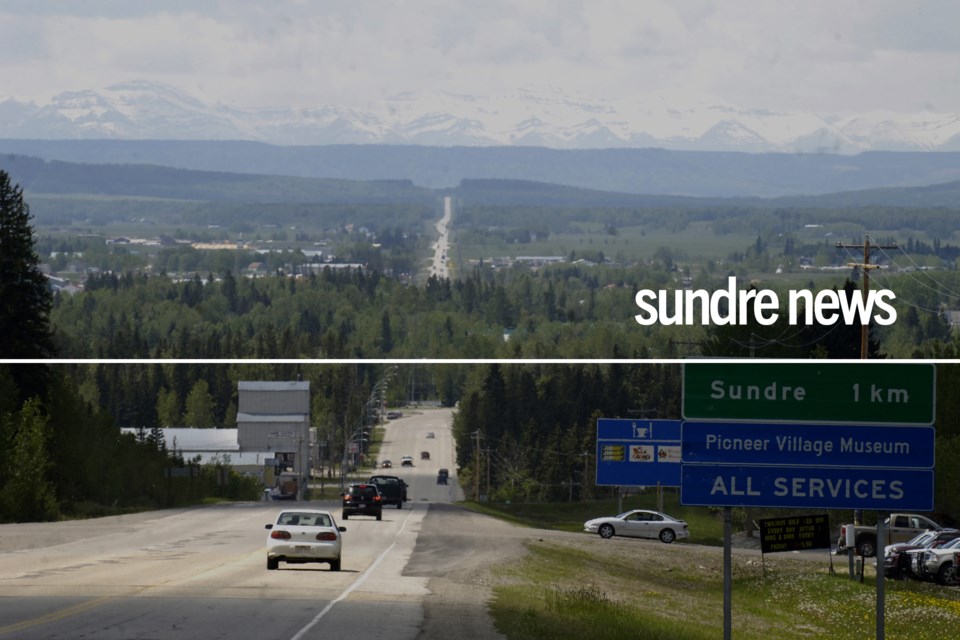SUNDRE — Uncertainty about the extent of the municipality’s provincially endowed powers pertaining to the Local Authorities Election Act has prompted administration to seek legal advice.
Providing a verbal report to council during the regularly scheduled March 14 meeting, Linda Nelson, chief administrative officer, said the act states that on or before March 1 immediately following a general election, a candidate shall file a disclosure statement with the secretary of the candidate’s local jurisdiction.
The act further states that the local jurisdiction must ensure that all documents filed remain available to the public during regular business hours for a period of four years following the election, Nelson said, adding the legislation applies to both council as well as school board trustee candidates.
In the 2021 election, there were 13 candidates who ran for Sundre council.
Eight of them submitted their disclosure statements prior to the deadline, said Nelson, adding the other five did not file on time.
The act further stipulates that a candidate who is required to file a disclosure statement but fails to do so on time, must pay a late filing fee of $500 to the relevant local jurisdiction, she said.
“This language is important…it is not that the relevant local jurisdiction ‘may’ impose the fee,” she said, noting the act’s deliberate use of the word “must.”
Another section in the legislation states that a local jurisdiction shall not transmit a report in relation to a candidate provided the return is filed no later than 10 days after the filing deadline, she said, adding a notice and an invoice was sent to all five of the candidates who failed to file on time to ensure they were all well aware of the penalty involved.
Filing prior to that 10-day grace period negates the requirement to make the information public, but does not absolve the candidate from paying the penalty, she said.
“Subsequently, all candidates have requested a waiver of the fee, which has raised a number of questions including whether or not council has the authority to waive a fee under a provincial legislation,” she said.
Furthermore, if the late filing fee is not paid within 30 days after the date the penalty was due, the jurisdiction shall send a notice to the candidate indicating the amount of the late fee that is to be paid. And if a candidate who is notified by the local jurisdiction does not pay the late filing fee set out in the notice, the jurisdiction may file a copy of the notice with a clerk of the Court of Queen's Bench, she said.
“On being filed, the notice has the same force and effect and may be enforced as though it were a judgment of the court,” she said. “There is no reference to the ability or jurisdiction of council with regard to waiving a late filing penalty.”
This has caused some confusion and concern since the Act did not previously require a self-funded candidate to file, she said.
“That is no longer the case,” she added.
Administration has engaged in what she called extensive discussions with Municipal Affairs and also proceeded to send “a request for casual legal advice on this matter.”
At least nine references outlining the requirement to submit the disclosure statement were flagged in the election procedures package provided to the candidates prior to the election, she said.
“We also advertised on at least two different occasions in the local paper that this form was required” and that information was also posted on the municipality’s website, she said.
“What we are requesting, is that no action be taken until further information is obtained from legal counsel,” she said, adding the matter would be brought back on the agenda for the March 28 meeting, which remains within the time period required to send a candidate a notice that the fee is due.
“Pending information coming back from legal counsel, council may choose to waive that fee,” she said. “All but one of the candidates mentioned that they just simply forgot to file — they had every intention on filing; they just missed the deadline and it slipped their minds.”
Mayor Richard Warnock agreed a cautious approach was the best course of action.
“I think it’s prudent for us to wait for the legal advice so that we don’t do something that Municipal Affairs would not like our community to do,” said Warnock.
“If this is a requirement and we’re stuck with it, then we have no alternative when we’re regulated by the province,” the mayor said.
He asked if the motion could instead of accepting the verbal report for information be to table the discussion until the next meeting.
“That would work just as well,” replied Nelson.
Coun. Connie Anderson’s motion to that effect carried unanimously.



